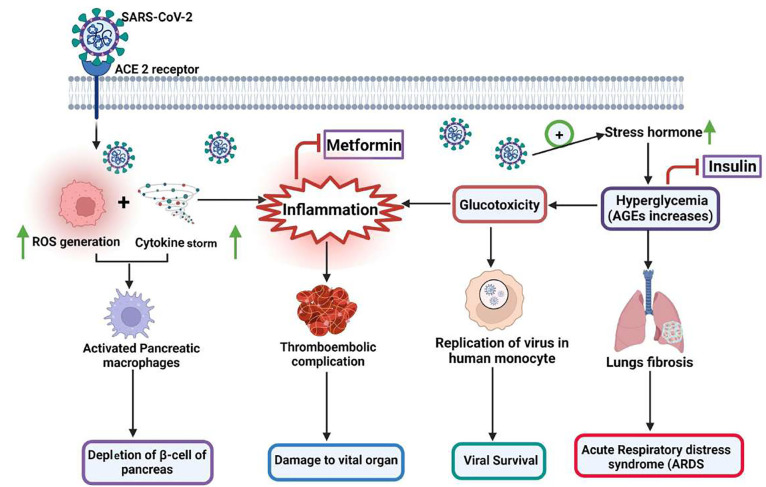Figure 4.
Possible connection between the pathophysiology of diabetes and SARS-CoV-2 infection. Infection with SARS-CoV-2 leads to increased levels of stress hormones like glucocorticoids that cause lung fibrosis, acute lung damage, and acute respiratory distress syndrome (ARDS). Elevated levels of inflammatory cytokines lead to the development of hyperinflammation, further causing the activation of pancreatic macrophages and subsequent depletion of β islets cells. Glucotoxicity resulting from elevated stress levels favors viral survival and eventually causes elevation of inflammation. Insulin resistance, hyperglycemia, and inflammation-induced vascular endothelial damage contribute to cardiovascular events, and thromboembolism leads to multiple organ failures. Due to its anti-inflammatory property, Metformin has demonstrated potential for treatment of the SARS-CoV-2 virus-mediated infection. Metformin inhibits the interaction between the virus and the host cell, and suppresses the production of ACE2 via activation of adenosine monophosphate-activated protein kinase (AMPK).

